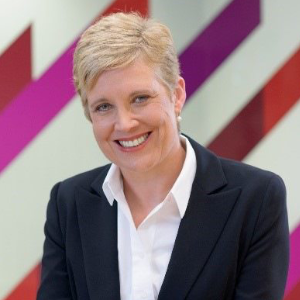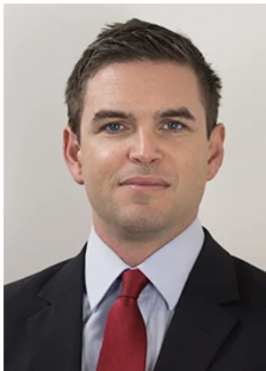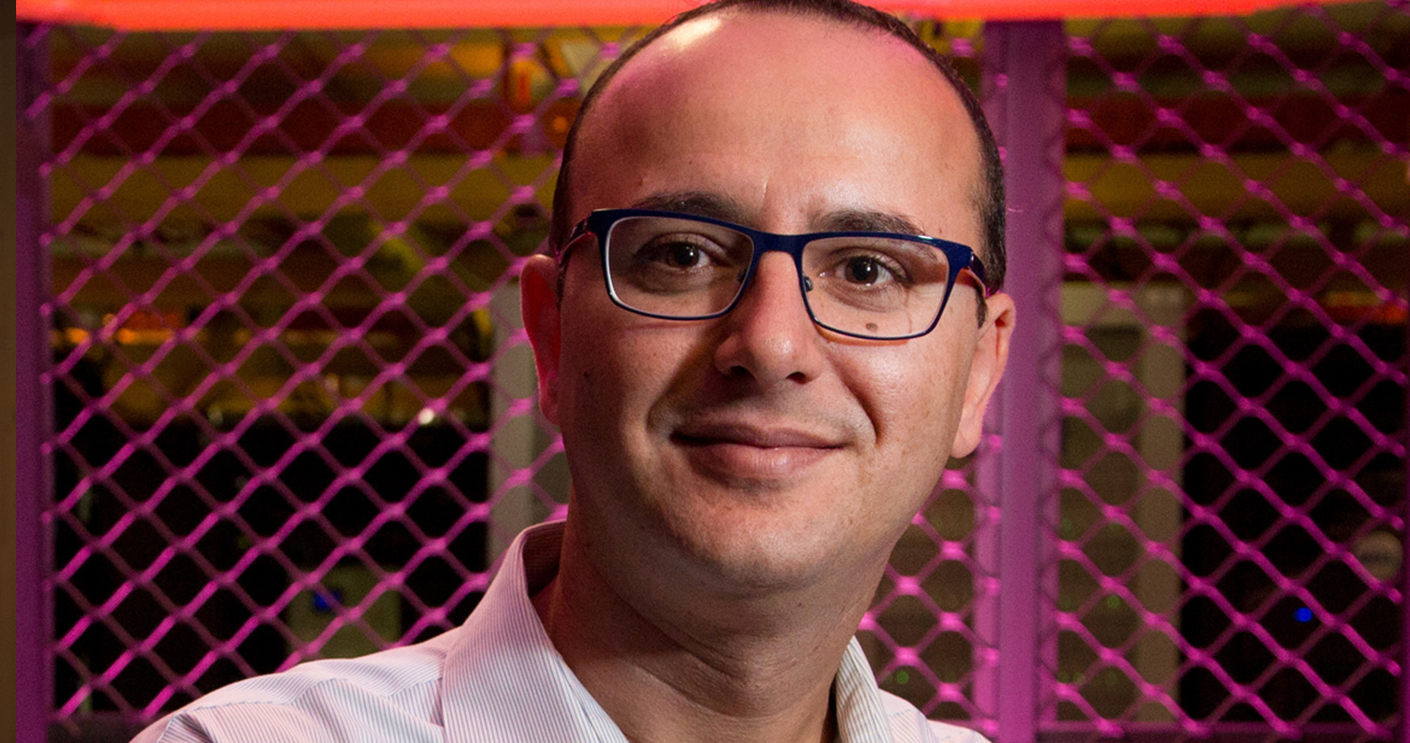Professor Dali Kaafar, Executive Director of the Optus Macquarie University Cyber Security Hub, who is an adviser to industry and governments regarding privacy concerns relating to the COVIDSAVE app.
COVID-19 has made Cyber Security a hot topic, with privacy concerns around the Government’s COVIDSAFE app, accusations of hacking of COVID-19 vaccine research and millions flocking to e-retail sites as physical stores close.
“Our work has never been timelier,” says Professor Dali Kaafar, newly appointed Executive Director of the Optus Macquarie University Cyber Security Hub. “We have to enable explicit trust in the digital economy amidst COVID-19, and we have a talented and multi-disciplinary team of researchers from across the university who are working hard to make this trust possible.
“Working with Optus, we are partnering to seed secure cyber-driven industries as a means of growing the economy and create the new generation of jobs for the industry”.
Pro Vice-Chancellor (Research Innovation) Professor Dan Johnson, who recently joined the Hub’s leadership team, says it’s an exciting time for the many Macquarie staff involved in the centre’s research.
“Our Cyber Security Hub is in a really exciting phase of reinvigoration,” he says. “We’ve structurally integrated our multidisciplinary research with industry leadership, which is allowing us to respond to these real-world market challenges and opportunities and enable change that adds real value – the very definition of innovation.”
And it’s not just Australian businesses that are benefitting. Director of International Programs Professor Philomena Leung says there is growing international interest in the Hub.
“Following the overwhelming success of the Cyber Exchange mission in India last year, our reputation as international hub for information integrity has been strengthening, with more partnership opportunities and two-way flows of talent, research and analytics,” Professor Leung says.
Education, Training and Digital Cyber Upskilling lead Professor Anne Cooper says their revitalised cross-faculty focus is also benefitting students, with the Hub’s multi-disciplinary research programs and expertise having been successfully synthesised into an integrated education, training and outreach program.
The Hub’s multi-disciplinary approach is creating exciting opportunities, agrees Professor Elizabeth Sheedy, who is leading one of the research programs.
“The opportunity for cross-faculty collaboration is one of the most attractive features of the Hub,” she says. “We’re learning a great deal from each other.”
Here are six cross-faculty Cyber Security Hub research programs that are shaping the future of Cyber Security. Academics with an interest in these areas are encouraged to contact the relevant program director.
Software and Cyber Physical Systems Security (SCPSS)
Professor Kaafar is directing the Ditno Project, with research led by Dr Muhammad Ikram in the Department of Computing. The team is using data-driven analysis to develop machine-learning algorithms aiming at improving privacy and security across web and mobile, as well as detecting fraud in online services.
Data Security and Privacy (DSP)
Also directed by Professor Kaafar, this program includes two projects led by Dr Ikram and Dr Hassan Asghar in the Department of Computing. Dr Ashgar’s work is centered around building privacy-preserving systems for data sharing and enabling trustworthy machine learning with applications for Health Datasets combining expertise from three different faculties.
Risk Management Governance and Control (RMGC)
 Professor Elizabeth Sheedy (pictured) in the Department of Finance is directing three projects led by Professor Norma Harrison, Dr Stephanie Huang and Professor Pavel Shevchenko, and bringing together researchers in both the Macquarie Business School and Faculty of Science and Engineering.
Professor Elizabeth Sheedy (pictured) in the Department of Finance is directing three projects led by Professor Norma Harrison, Dr Stephanie Huang and Professor Pavel Shevchenko, and bringing together researchers in both the Macquarie Business School and Faculty of Science and Engineering.
An acclaimed risk-management expert, Professor Sheedy says managing cyber-risk is a huge challenge for both organisations and consumers.
“Complex supply chains mean that cyber-risks in one firm can flow through to others, like a virus,” she points out. “We’re investigating risk management solutions including ways that consumers can make better and smarter purchasing decisions in the online marketplace and avoid cyber-fraud.”
Legal and Ethics of Cybersecurity (LEC)
 Directed by Professor Niloufer Selvadurai (pictured), who is leading research along with Dr Doron Goldbarsht, this interdisciplinary program integrates legal, technical and business perspectives to address critical digital governance issues.
Directed by Professor Niloufer Selvadurai (pictured), who is leading research along with Dr Doron Goldbarsht, this interdisciplinary program integrates legal, technical and business perspectives to address critical digital governance issues.
The team are looking at issues including:
- how systems and networks can be designed to better support data privacy and data security and prevent cybercrime
- potential law reforms governing the use of artificial intelligence
- improvement to telecommunications laws in respect to industry and customer interests
- liability of telecommunications carriers and carriage service providers in respect to harmful third-party content
- the role of new payment products and services (NPPSs) in the mobile industry, including potential anti-money laundering (AML) risks
Human Centric Security (HCS)
 Directed by Professor Mark Wiggins (pictured) of the Centre for Elite Performance, Expertise and Training, alongside Deputy Director Associate Professor Shlomo Berkovsky of the Australian Institute of Health Innovation. Two research projects are being led by Berkovsky and Dr Piers Bayl-Smith, focusing on issues around the behaviour of human users and their interaction with cybersecurity technologies, with a particular focus on models for incident investigation and security of health data and applications.
Directed by Professor Mark Wiggins (pictured) of the Centre for Elite Performance, Expertise and Training, alongside Deputy Director Associate Professor Shlomo Berkovsky of the Australian Institute of Health Innovation. Two research projects are being led by Berkovsky and Dr Piers Bayl-Smith, focusing on issues around the behaviour of human users and their interaction with cybersecurity technologies, with a particular focus on models for incident investigation and security of health data and applications.
Cyber Strategy, Foresight and Policy (CSF&P)
 Professor Ben Schreer (Head of the Department of Security Studies and Criminology, pictured) directs this program, with research projects led by Adjunct Fellow Gary Gill and Dr Stephen McCombie.
Professor Ben Schreer (Head of the Department of Security Studies and Criminology, pictured) directs this program, with research projects led by Adjunct Fellow Gary Gill and Dr Stephen McCombie.
[We’d tell you more about this program, but we’d have to kill you! – Ed]
The research programs above represent a new chapter for the Cyber Hub. Its work over the last three years has focused on substantial projects with a range of partners, including: CSIRO, Data 61, the Department of Defence (DST), Ditno, and the NSW Government. The hub has attracted several million dollars in research funding for these projects. For more information please see the Hub’s webpage.
The Hub is looking for a broad range of academic expertise applicable to cyber security to contribute to the Hub’s education offerings, short courses and executive education. Please get in touch if you’re interested.


 Back to homepage
Back to homepage
Comments
We encourage active and constructive debate through our comments section, but please remain respectful. Your first and last name will be published alongside your comment.
Comments will not be pre-moderated but any comments deemed to be offensive, obscene, intimidating, discriminatory or defamatory will be removed and further action may be taken where such conduct breaches University policy or standards. Please keep in mind that This Week is a public site and comments should not contain information that is confidential or commercial in confidence.